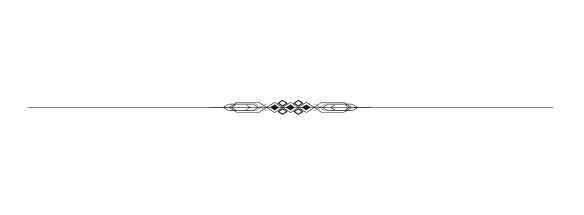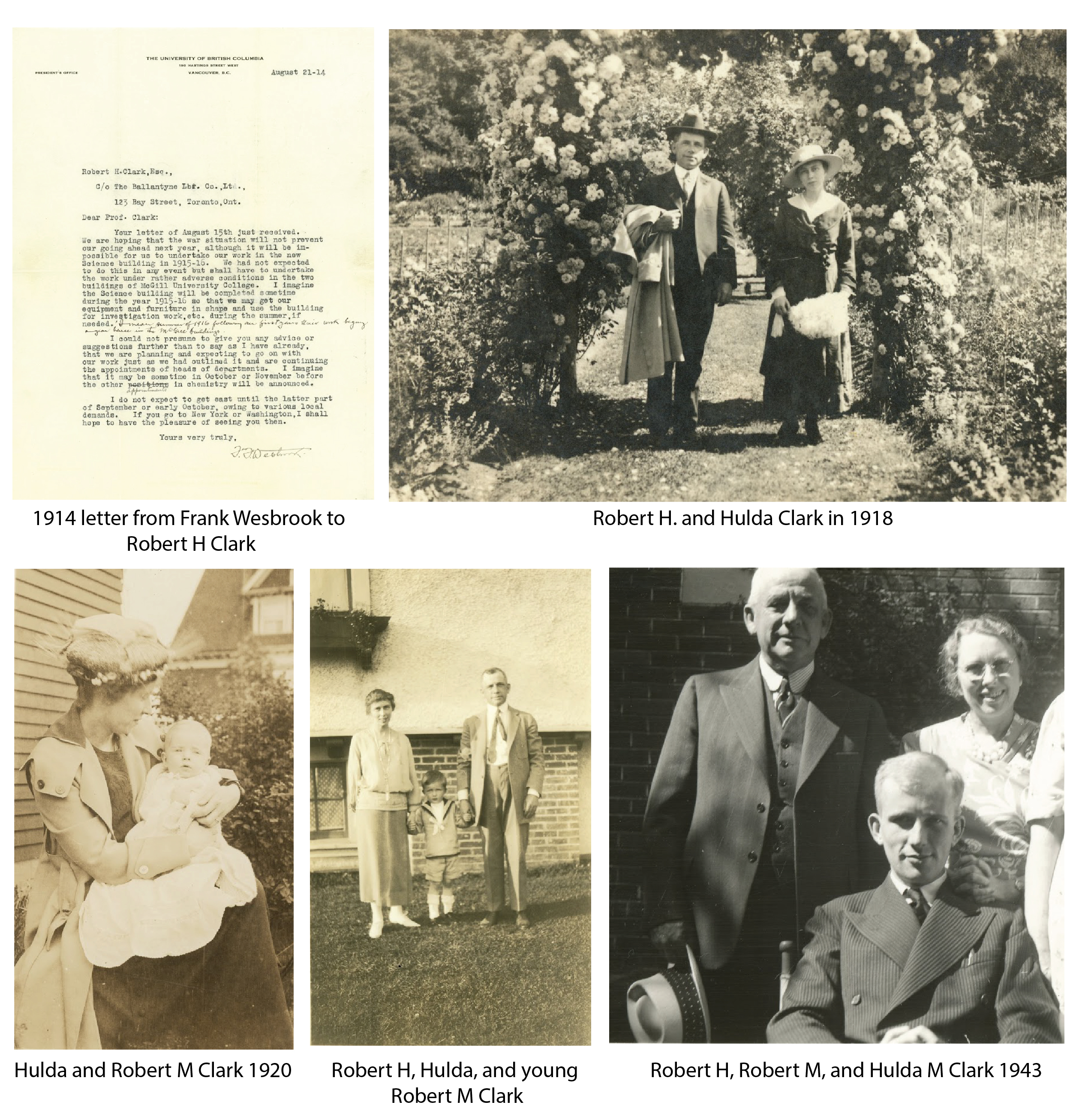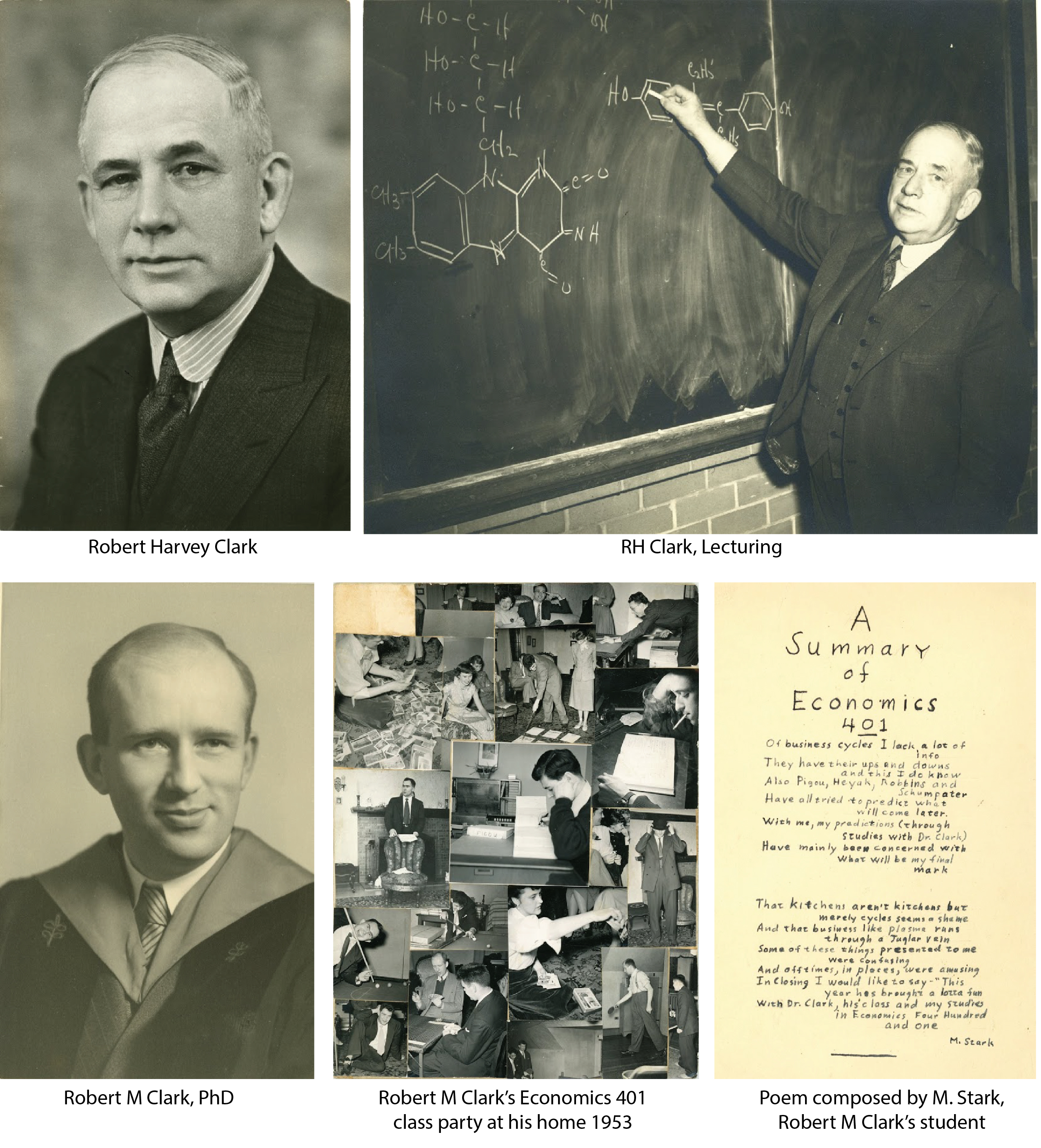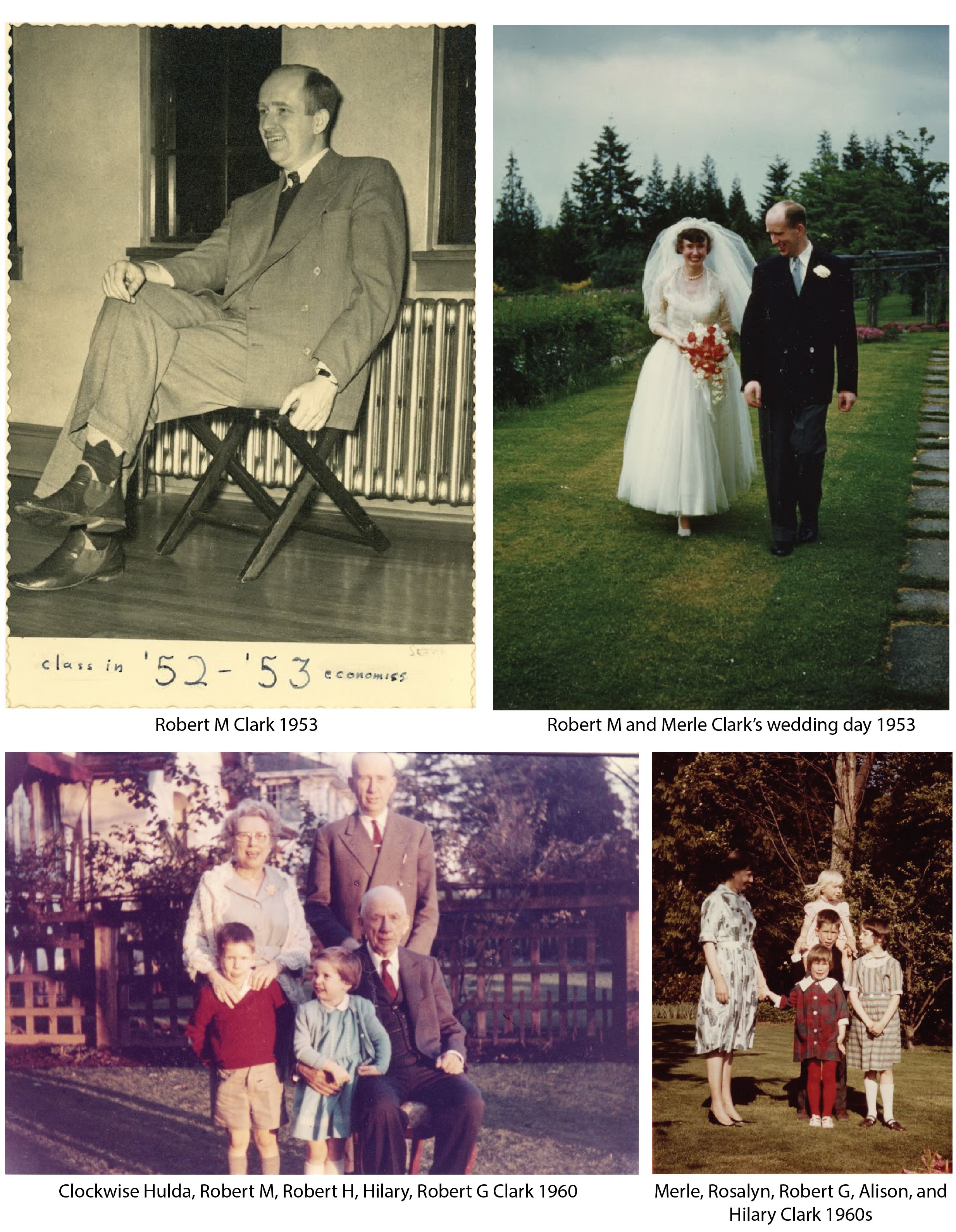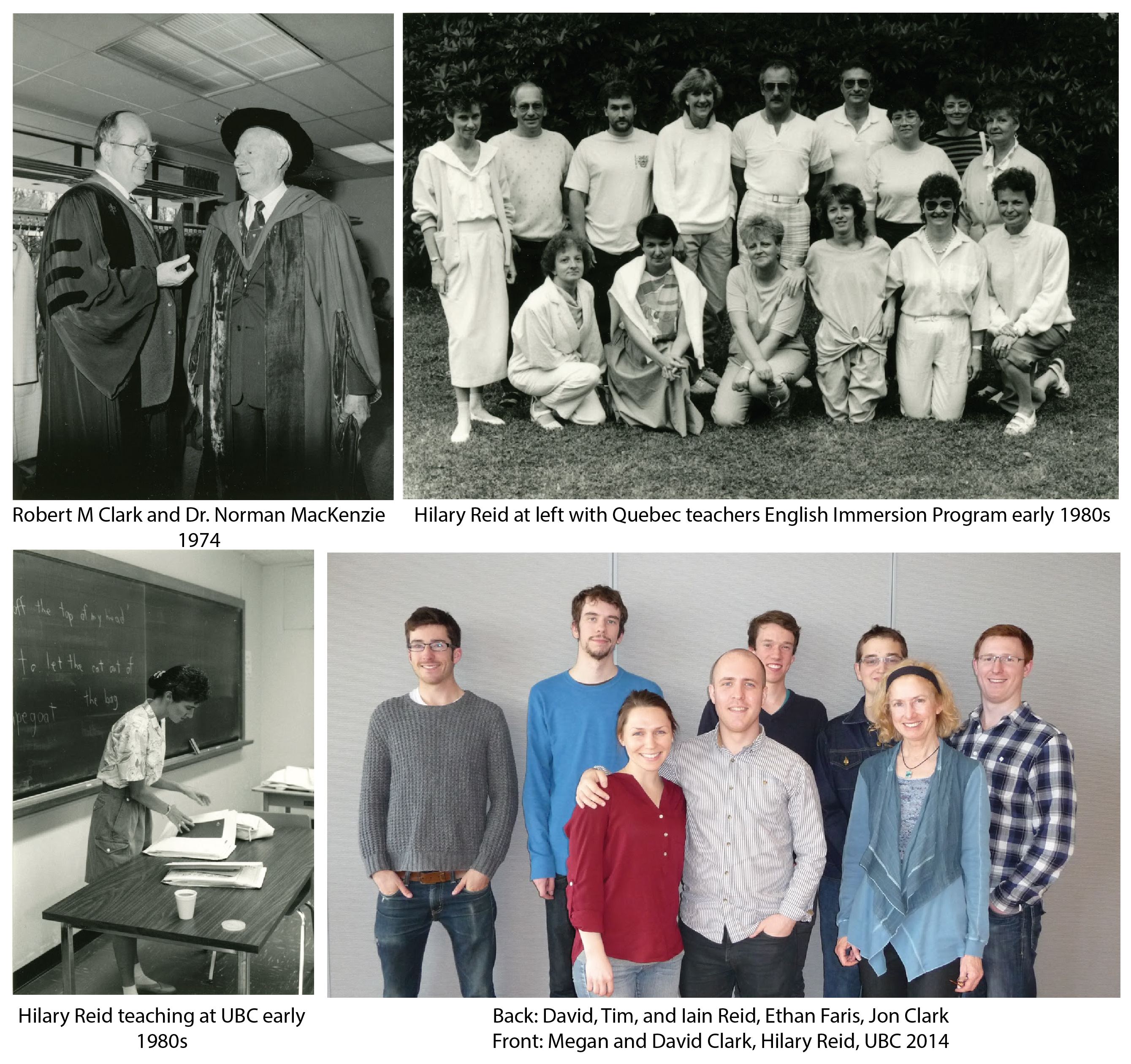January 2016
Happy 100th Birthday, UBC!
Did you know that we share a Centenary? That’s because back in 1916, my grandfather, Robert Harvey Clark, became one of the founding members of your Chemistry Department. Amazingly, there’s been an unbroken succession of Clark descendants teaching at UBC ever since. Just as two World Wars and the Great Depression shaped UBC’s development, so did they impact my family’s ongoing connection with this great university over the last century.
Here is a brief familial history as it relates to UBC, aided by the fact that the Clarks never seem to have thrown out a document in the last hundred years.
In the family archives, for example, are a few letters from the first President of UBC, Frank Wesbrook, to my grandfather, pertaining to the university’s early efforts to bring him on faculty. On Aug. 21, 1914, Wesbrook wrote “We are hoping that the war situation will not prevent our going ahead next year, although it will be impossible for us to undertake our work in the new Science building in 1915-16.” On March 1, 1915, the President again wrote, “Owing to war conditions our budget has been cut….The Government holds out the hope that even during the next year if favourable war news is forthcoming…we may resume our plans.”
Finally, in 1916, R. H. Clark was successfully engaged “to take full charge of all the organic chemistry given in the University.” Having just married Hulda Alberta Mills in Ontario that summer, he brought his new bride to Vancouver to begin their life together at the fledgling University of British Columbia. When he began his career, the campus comprised just one building and four huts adjoining the General Hospital on Fairview Slopes. His starting salary was the princely sum of $2,700 per annum.
So who exactly was Robert Harvey Clark? My grandfather was born in Ontario in 1880, and after attaining two degrees at the University of Toronto, completed a PhD from the University of Leipzig in 1909. Once at UBC he achieved the rank of Full Professor by 1922, and was Department Head of Chemistry from 1927 to 1948. According to his biography, written by J. A. F. Gardner for the Royal Society of Canada in 1962, his research interests were broad, including among other subjects “the analysis and evaluation of medicinal plants and other flora of western Canada, the densification of native softwoods, and the preparation of synthetic wool and rubber. Interested in the development of the natural resources of British Columbia, he collaborated with specialists in medicine, biochemistry, biology, fisheries, and wood utilization.” He was also heavily involved in research, much of it classified, to assist in Canada’s Second World War effort.
A Fellow since 1928 of the Royal Society of Canada, on retiring in 1948, R. H. Clark was awarded Emeritus status by UBC; became an Honorary Life Member of the American Chemical Society; and was named Honorary Life Fellow of the Chemical Institute of Canada in 1954 “in recognition of his extensive and valuable contributions over many years to the development of chemistry and chemical industry in Canada.”
Not only did R.H. Clark introduce several UBC generations to the exciting possibilities of organic chemistry, he and his student protégés published over 100 scientific papers and reports. He was apparently known not only to be an enthusiastic teacher, but also one who took a keen personal interest in his students, and who inspired many to specialize in the same field.
Perhaps one of his most cherished contributions to university life, and one which lasted longest in the memory of his students, were the parties he and his wife Hulda hosted each year for all the Chemistry students in the Department at their stately Kerrisdale home on West 49th Avenue. I remember long after my grandfather’s death in 1961, how pleased my grandmother was to continue receiving dozens of Christmas cards each year from many of these grateful former students.
The Great Depression left its mark on UBC, just as it did on the rest of the world. Even during this period, my grandparents continued to entertain students in their home. In her private memoirs, my Grandmother recalled “Professors were let out at UBC and salaries for those remaining, cut. We never turned anyone away from our door and tried to give a word of cheer along with a good meal. At our annual student parties the quantities of food disappeared with amazing rapidity. The students came at 8:00 and stayed until after 1:00 a.m.”
Hulda Clark took an active role in university life in her own right, as a Charter member of the Faculty Women’s Club in 1917, and later its President (1939, 1940). She was also President of the Women’s Educational Auxiliary to Union College (1956, 1957), on whose Board R. H. Clark served as Chairman for eight years post-retirement.
It was in the fecund days of UBC’s early development that my father, Robert Mills Clark, was born in 1920, followed by his brother, Douglas Harvey Clark, six years later. R.M. Clark went on to become a UBC student, graduating as a Gold Medalist in Commerce in 1941, and with an Honours BA in Economics in 1942. (These disciplines were to the disappointment of his father, who had hoped he would become a scientist.) Robert Mills Clark then obtained MA and PhD degrees in Economics from Harvard University in 1944 and 1946. With alacrity, UBC President Norman MacKenzie, in a letter dated May 1, 1946, offered him a teaching position at UBC that fall with a starting salary of $3,000.
World events again played a hand in the family UBC chronology. Although my grandfather should have retired at the age of 65 in 1946, he also received a letter from President MacKenzie, requesting that he stay on to teach another year “and thus help us meet the emergency caused by the large enrolment of veteran students.” In the end, R. H. Clark remained not one, but two extra years to address the huge demand for a university education created by returning Canadian soldiers. Father and son therefore taught on the UBC campus together for two unexpected but welcome years.
UBC’s post WW II experience was later alluded to in a poem composed by Robert Mills Clark for a dinner in honour of former President MacKenzie’s 90th birthday in 1984:
When you came to the campus in ‘44
There were three thousand students, perhaps a few more.
Dynamic duo, you and Shrum,
Swiftly prepared for the veterans to come.
Old army huts sprouted where grass there had been,
With 9,000 students at their books on the scene.
New programs were added in Science and Art,
New faculties started in which some here took part.
Programs for professions and business as well,
And Graduate Studies. There’s so much to tell!
All of these faculties growing in scope,
Offered more students some new grounds for hope….
When R. M. Clark joined the Economics faculty in 1946, it had only four or five members, and was under the larger rubric “Department of Economics, Political Science, and Sociology.” Former colleague Tony Scott recalled the Department being inundated with hundreds of post-war students in accelerated programs for Arts or Commerce degrees, and Robert Mills Clark being “very welcome not only because he was a fine and hard-working teacher, but because at Harvard he had excelled in a number of fields that gave him the versatility to cover more than his share of the department’s offerings… general and advanced statistics, the history of economic thought, the measurement and prediction of business cycles, and of course, his own field: the economics of public finance.”
It was, indeed, public finance which was dearest to my father’s academic heart. His expertise included government finance, provincial and municipal taxation, pensions and connected legislation, and the governance of universities. Throughout his career he frequently advised all levels of government on taxation and pension related issues. In addition to teaching, which he loved, he served as UBC’s Director of Academic Planning from 1965 to 1977, and on the University Senate from 1966 to 1977. On campus he was renowned for three distinctive characteristics: his trademark bushy eyebrows, the miniature schnauzer which accompanied him to lectures for many years, and the clever verses which he frequently composed to mark special occasions in Senate and other meetings.
Robert M. Clark also served on the Board of the Vancouver School of Theology, and was instrumental in the affiliation of Regent College with UBC in 1974. A key player in establishing the Faculty Pension Plan in its current form, he was a member of the Board of Trustees for the Plan for over ten years. Likewise, his report on Economic Security for the Aged, commissioned by the Federal Government, had a large influence on the subsequent course of Old Age Security Benefits in Canada.
Clark’s significant contributions to the University were acknowledged, among other accolades, by his receipt of UBC’s Blythe Eagles Service Award in 1992. The Robert Mills Clark Scholarship he endowed continues to be offered annually to outstanding students majoring in Economics. R.M. Clark was awarded the 125 Year Confederation Medal by the Federal Government in 1992 for his outstanding service to the people of Canada.
Returning to earlier family history, in 1953 Robert M. Clark broke the rules and married one of his brightest students, Merle Wiedrick. Although taking his Economics course, she was an English Honours major, who still remembers fondly the inspirational teaching of Roy Daniells and Earl Birney of UBC’s small but inspiring English Department in the early 1950s. Merle Clark was active in the Faculty Wives’ Association, and served instrumentally on the Board of Regent College for many years. Robert and Merle had five children: Robert Gage, Hilary, Alison, Rosalyn, and Jeremy. Of these, four eventually attained one or more UBC degrees, in Economics, Commerce, English, and French.
I, the eldest daughter of this union, was the English Major. Attending UBC between the years of 1975 – 1980 in the English Honours program, I, like my mother, was highly impressed by the calibre of my professors. Classics sage Malcolm MacGregor stands out in memory, striding to class in his flowing black gown. Prof. Ben Moyles somehow pulled me through the dark waters of first year Math to land exhausted but alive on the far shore. English professors such as Geoffrey Durant, Jonathan Wisenthal, Craig Miller, Richard Bevis and Ira Nadel made learning a delight, and prepared me so well for my Master’s Degree at the University of Toronto that I completed it the following year, in 1981.
Returning to UBC for some Education courses, I then worked as a Lecturer in the University’s revered English Department for three years, and at UBC’s English Language Institute starting in 1982, the same year I married UBC biology graduate Bruce Reid. Thirty-four years later, I am still teaching full time at the Point Grey campus, where I enjoy instructing students from around the world who are attracted by UBC’s overall excellence and worldwide reputation. Like R. H. and R. M. Clark before me, I was fortunate enough to overlap my father on campus; Robert Mills Clark retired Emeritus from UBC in 1985, and passed away in 2007.
I have not been the only one of my siblings to teach at this university. My brother Jeremy Clark, with two degrees from UBC (BA 1990, MA 1991) and a PhD in Economics from Cornell, was a visiting Assistant Professor of Economics at UBC from 1996 – 98. He subsequently took a position in the Economics Department at the University of Canterbury in Christchurch, New Zealand where he continues as Professor, until recently serving as Head of Department.
Surprisingly, this UBC family chronology continues even beyond our generation. Seven of Robert Harvey Clark’s great-grandchildren have also attended UBC, including Jennifer Alparaque (née Clark), David Clark, Jonathan Clark, Tim Reid, David Reid, Iain Reid, and Ethan Faris, the latter three still students today. In fact, there is even a member of this fourth generation who has lectured in the hallowed halls of his forebears. PhD student and Teaching Assistant David Reid has helped instruct more than one Geography course, and to no one’s surprise, finds that he enjoys teaching.
And what, one might ask, has my family learned from their association with this university from its embryonic stage? Whether one teaches in the Sciences or the Humanities, to students from near or far, with the privilege of education comes responsibility. This includes not only the responsibility to impart knowledge, but also to pay attention to the larger world and its problems, and to contribute actively to their solution, while encouraging one’s students to do the same.
One hundred years for UBC; one hundred years and four generations of our family history entwined with this great institution. It has indeed been a privilege and a highly educational experience.
These pictures are reproduced with the permission of Hilary Reid.
